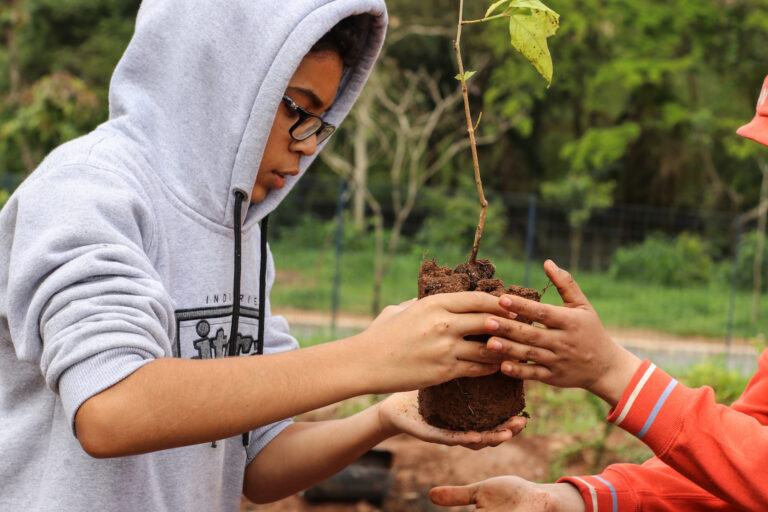“Atlantic Forest in Schools” is an action based on two distinct approaches and complementary. The first involves the continuing education of teachers and other educational agents of municipal schools, in order to expand their repertoires about the issues of the Atlantic forest, climate change, and several other themes socioenvironmental. The other approach is based on planting mini-forests in schools.
Its action directly involves students in all stages of the process, which cover the study of soil preparation, planting, and plant care. These mini forests, as they grow, serve as real outdoor classrooms, promoting biodiversity and decreasing the temperature in the regions where they are located, thus becoming a green haven of life in the midst of the built urban landscape. In 2021, the planting program was implemented in four CEUs in the city of São Paulo, around 1,500 children and adolescents were assisted, with the planting of more than 2,000 seedlings of approximately 130 species of trees native to the Atlantic Forest; each mini-forest has about 500 m2.

